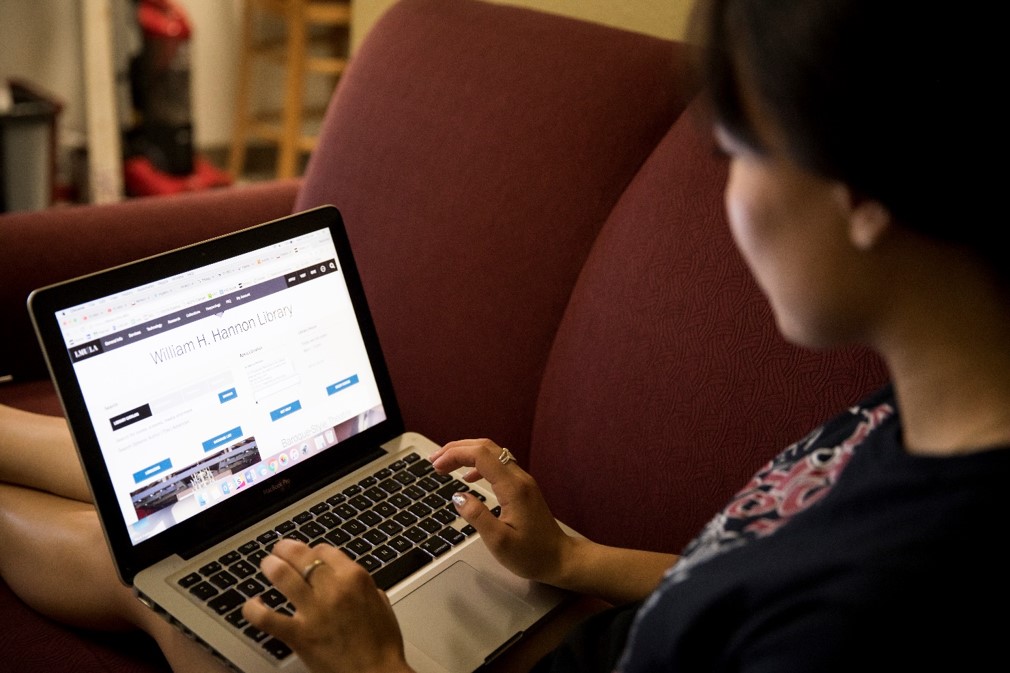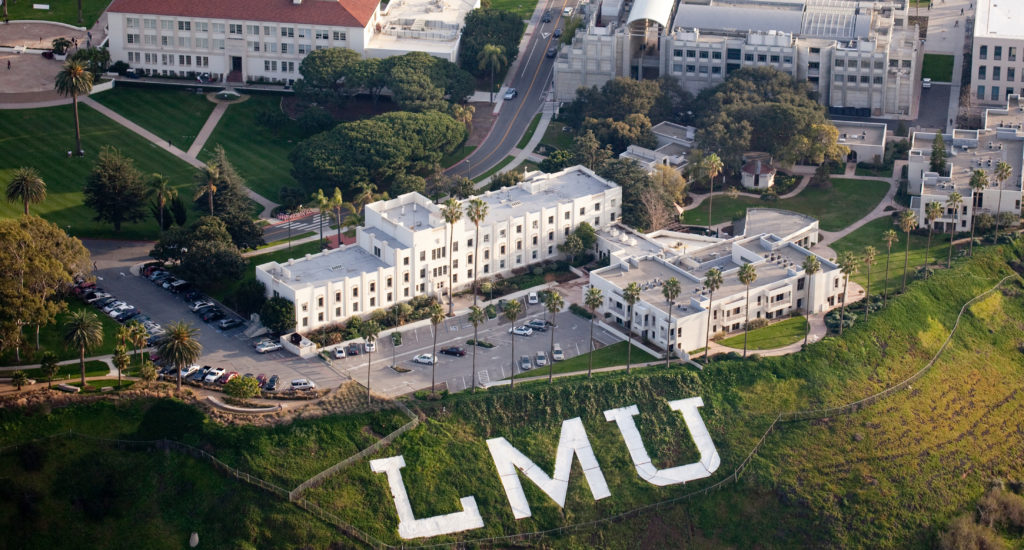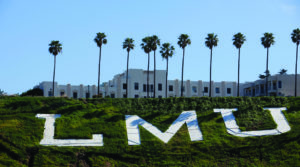WILLIAM H. HANNON LIBRARY | In mid-March 2020, the William H. Hannon Library sent a note to the LMU community that was contrary to every librarian’s instincts: “We regret to inform you that, due to health concerns about COVID-19 and out of precaution for our users and our staff, we have been asked to close the library until further notice beginning March 18.”
The staff of Hannon Library quickly utilized a variety of channels to keep students and faculty informed about alterations to library access and services, including email, social media, individual outreach, and updates on the website.
“We wanted students to know that we have been preparing for decades to provide them with quality library support, no matter their physical location,” said Kristine Brancolini, dean of the William H Hannon Library. “They’re learning online and we’re right there with them. We have hundreds of thousands of e-books and journal articles, thousands of online databases, and dozens of online videos designed to help students access and use them.”
As the situation changed, sometimes on a daily basis, the Hannon Library sent out updates via social media channels and LMU LEO to keep students up to date. It soon became clear that the building would be closed indefinitely. Library staff contacted all the associate deans, faculty library representatives, Faculty Library Committee members, departments chairs, and deans to update and inform them about how the library would continue to support faculty and students through the rest of the semester.
The library staff also quickly addressed technical issues. “The first was making sure that all our employees had the computers and access that they would need to work from home,” said Brancolini. “Our head of Systems and Digital Initiatives traveled to the homes of some staff to set up computers that have special software.” Some users occasionally experienced difficulty accessing library resources because of heavy traffic on the proxy server, which authenticates students and faculty so they can use licensed online resources. Brancolini said that LMU is in the process of upgrading the proxy server software.
As faculty prepared to transition to online teaching after spring break, library staff faced new challenges. Despite the library’s wealth of electronic resources, books, DVDs and other physical media remain essential information resources. For books and films for which Hannon Library did not already have e-versions or streaming access, they quickly sought out sources of electronic versions, starting with the books and films on course reserves. The library staff has been processing new requests from students and faculty as they come in. For books and films in our collection that are not available electronically, the library is using the Fair Use provision of copyright law to digitize sections of book and convert DVDs for restricted online access via Brightspace.
Librarians are also providing online instruction through pre-recorded Zoom lessons tied to course learning objectives and creating new video recordings to help students find and use library resources effectively. These videos can be linked through Brightspace courses pages or accessed directly through the library’s special LibGuide for use during the campus closure. One of the latest how-to videos demonstrates the different and often confusing ways that e-book publishers provide access to the books’ content. Librarians also continue to provide 24/7 research support through their Ask-a-Librarian chat service.
There is still the sticky situation of getting back all those library books that students and faculty have checked out. In most cases, Hannon Library simply extended the due dates until next semester, trusting students will return those books eventually. For graduating students who had items checked out, the library has been reaching out individually to find solutions, by mail or drop off, to let them return those materials.
Along with the usual work that makes a world-class research library run smoothly, the Hannon Library staff has two pandemic-related challenges: dealing with a growing back-log of physical information resources – both newly-acquired and returned from users – and documenting the and the experiences of LMU students during this historic experience.
Much of the work of the library cannot be done “working from home.” The summer is one of the library’s busiest times of year: receiving, cataloging, and processing new books for the collection; re-shelving returned materials; and completing projects that run year-round. “This virus is going to create a backlog of material that is likely to extend into fall semester,” said John Jackson, outreach and communications librarian. “A few dedicated library staff have been working limited, staggered hours to address these backlogs.”
Yet, the core mission of the library, collecting knowledge, goes on. University Archives collects unique resources that tell the story of LMU, administratively and personally. “I often like to say that ‘Libraries are in the memory business,’” Jackson said. “It’s our job to make sure stories are preserved so that future researchers can utilize them. To that end, we are trying to collection students’ COVID-19 and stay-at-home stories so that the experience of our community is not lost. So, in addition to continuing to support LMU’s current researchers, we also are preparing for future researchers.” More information on that project is here. Cynthia Becht, head of archives and special collections, added, “We have a responsibility to present history accurately and thus are seeking to preserve the fullest LMU Covid19 story we can. Anyone in our LMU community who has a contribution for the Covid19 collection in the University Archives is encouraged to contact us: special.collections@lmu.edu.’”
The COVID-19 pandemic has physically separated LMU students and faculty from the Hannon Library building, but the staff are working hard to fill the gaps. “We’re very proud of our ability to quickly shift gears to work from home, building on our existing online strengths to find creative solutions to meet new and unanticipated needs,” Brancolini said. “This summer a large group of our librarians is completing a series of online workshops to learn how to create videos to support online learning more effectively. Librarians are lifelong learners. We are always up for a new challenge.”




